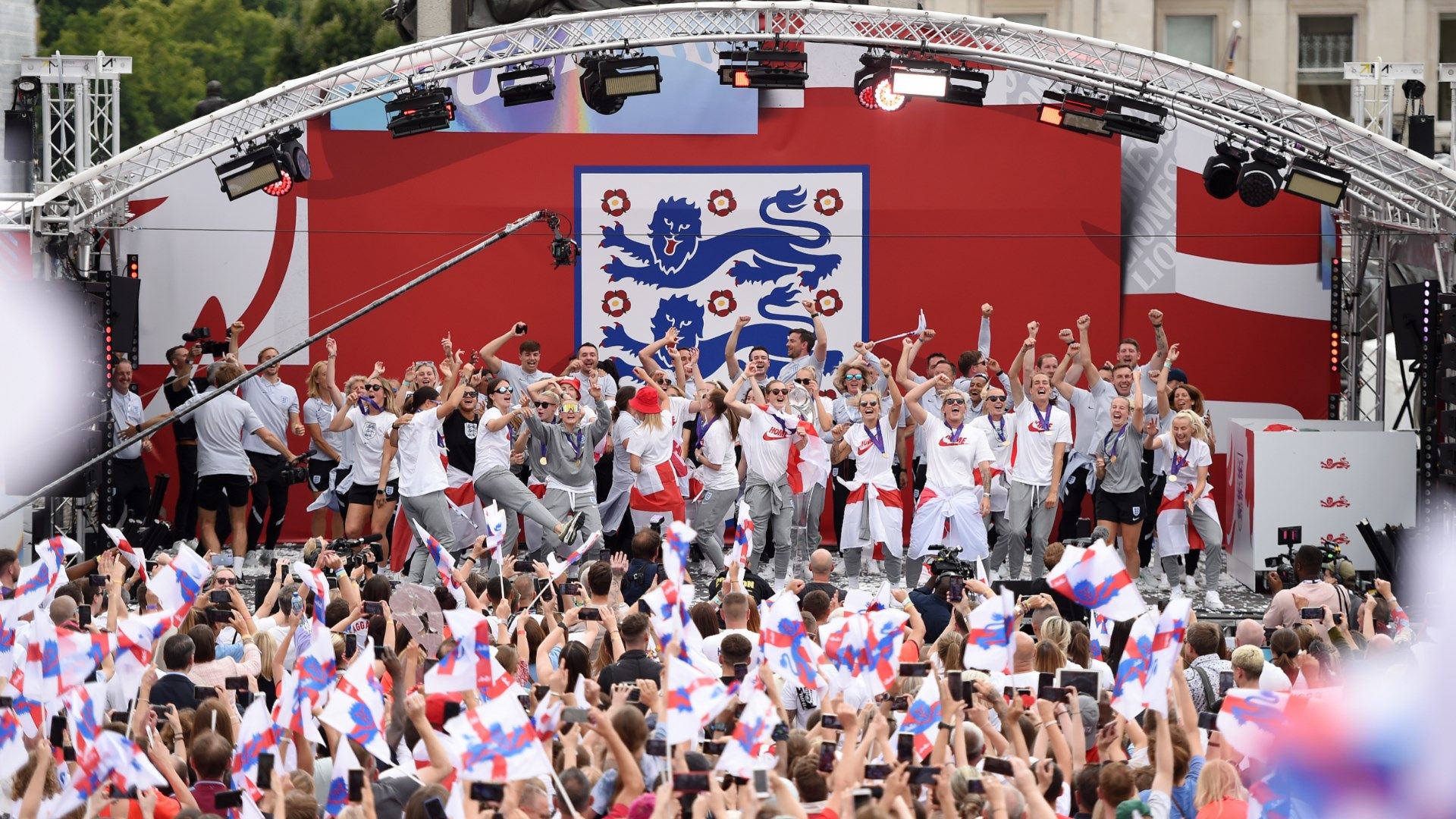Sports
What can women’s football learn from other sports? How cricket and rugby league are providing lessons on changing audiences and taking risks | Goal.com US

Speaking on the Footballco Business Podcast, Jenny Mitton, Managing Partner and Women’s Sport Lead at M&C Saatchi Sport & Entertainment London, discussed the rise of women’s football, what brands are doing or should be doing, and how much of a challenge this year is with no major international tournament to focus on. Mitton also discussed her experience in other sports to see what lessons they can provide for women’s football.
The rise in popularity of women’s football in the UK and the range of brands engaging with women’s sport has often been attributed to the success of the 2022 Women’s Euros – a combination of a domestic tournament combined with the Lionesses lifting the trophy being the perfect platform to raise the profile of the game and bring in new audiences and advertisers. While some were surprised by Euro 2022’s success, Jenny saw this coming, given her work across other sports.
“I actually had a bit of a preview beforehand,” she told the Footballco Business Podcast. “My first big campaign was in cricket. And actually, back in 2017, I don’t know if you remember that wonderful day at Lord’s for the Women’s Cricket World Cup final. Everyone turned on the TV; we didn’t have the striped suits and sort of, white male faces. We had this eclectic crowd of different faces, young, old – huge diversity. And it was sold out for a women’s game.
“It was thrilling, quite tense. There was a bit of jeopardy in that game. I think they won by only about nine runs in the end but went on to become World Cup champions. And that for us was a huge moment, not because the crowd looked different, but then when the ECB released some insights post-match, we saw their behaviour was different too.
“Rather than buying pints of beer and probably champagne at Lord’s, they were spending huge amounts on coffee. And suddenly, I think brands and rights holders went, this is interesting. Not only are we bringing different people into sport, but they are behaving and spending differently, which gives us an opportunity potentially to work with different brands who would normally probably not have a role. I’m not sure how many coffee brands thought they could make millions from rowdy football fans, but in the women’s sports space, everyone’s willing to part four pounds for a great cup of coffee.”
Mitton highlighted during her interview that football doesn’t always lead the way. There are a number of examples of where football can learn from other sports. Sometimes, these sports are more nimble or willing to take risks, such as women’s rugby.
She added: “I think football has been at the forefront because, as you alluded to, there’s more money in the space. They’ve been enabled to invest. It’s also the biggest sport in the country. I think half the population consider themselves to be a football fan, which is pretty staggering when you think about all the multiple passion points that you could have. But there have been some other sports I think have been a bit braver in some areas and have tested the water that football can learn from.
“I think football is sometimes held back because all eyes are on it. And I think they’re very conscious they’re linked to a really successful men’s team in most cases. They’re really conscious about doing it well and not falling over and failing.
“I think some other sports are up for a bit of trial and error and testing things out a bit more. So, a really good example is the Women’s Rugby League. They’ve actually handed over the social channels to the players. The players run it. They create the content, and they deliver it. You’ve got to remember these are young 20-year-old girls, late teen girls. Social is their life. They can edit better than most of us.
“And they’ve been entrusted to show their personalities. They don’t have to worry about having media briefings. They’re just showing up as them in their life on the training field. And I think it’s about looking at other sports that maybe don’t have the constraints that you might have if you’re part of a really well-established club and being a bit braver with the women’s team like rugby league have.”
For more from this episode of the Footballco Business Podcast, including the brands that are winning in women’s football, listen to the show in full here.
SportsPro
SportsPro Says…
Mitton believes Euro 2022 “changed everything” for women’s soccer in England. On the commercial front, despite exponential growth already, things are only getting started.
Brands that have been first movers in the women’s game have enjoyed plenty of success. Barclays, for example, has been the title sponsor of the Women’s Super League (WSL) since 2019 and is investing significantly in grassroots, helping the bank to become synonymous with stakeholders at all levels of the game.
Mitton also wants women’s soccer properties to be bold and follow the example of other sports. Notably, the Rugby Football League (RFL) has launched new accounts on TikTok and Instagram being run by players to offer different touchpoints, as well as adding unique content. It would be easy for rights holders and brands to treat women’s soccer the same as the men’s, but evidence shows different tactics are required. For starters, the women’s game offers a more inclusive feel and has greater appeal for families looking to attend matches, therefore requiring a different tone in marketing.
On the sales side, there is huge potential in unbundling women’s properties from the men’s. FIFA and UEFA have already made the move, and a study from Deloitte forecasts growth in standalone sponsorship deals for women’s teams, especially in soccer, which will likely spark more investment and brand activations.
All this comes as NewCo prepares to take control of the WSL and Women’s Championship from next season. The organisation’s chief executive Nikki Doucet told SportsPro in April that she wants to make the WSL the “most distinctive, competitive and entertaining” women’s soccer league in the world. However, it’s vital that the wider English soccer pyramid is part of that story. The true mark of success for the domestic women’s game will be ensuring player participation, fan engagement and commercial interest extend all the way down to grassroots level.









